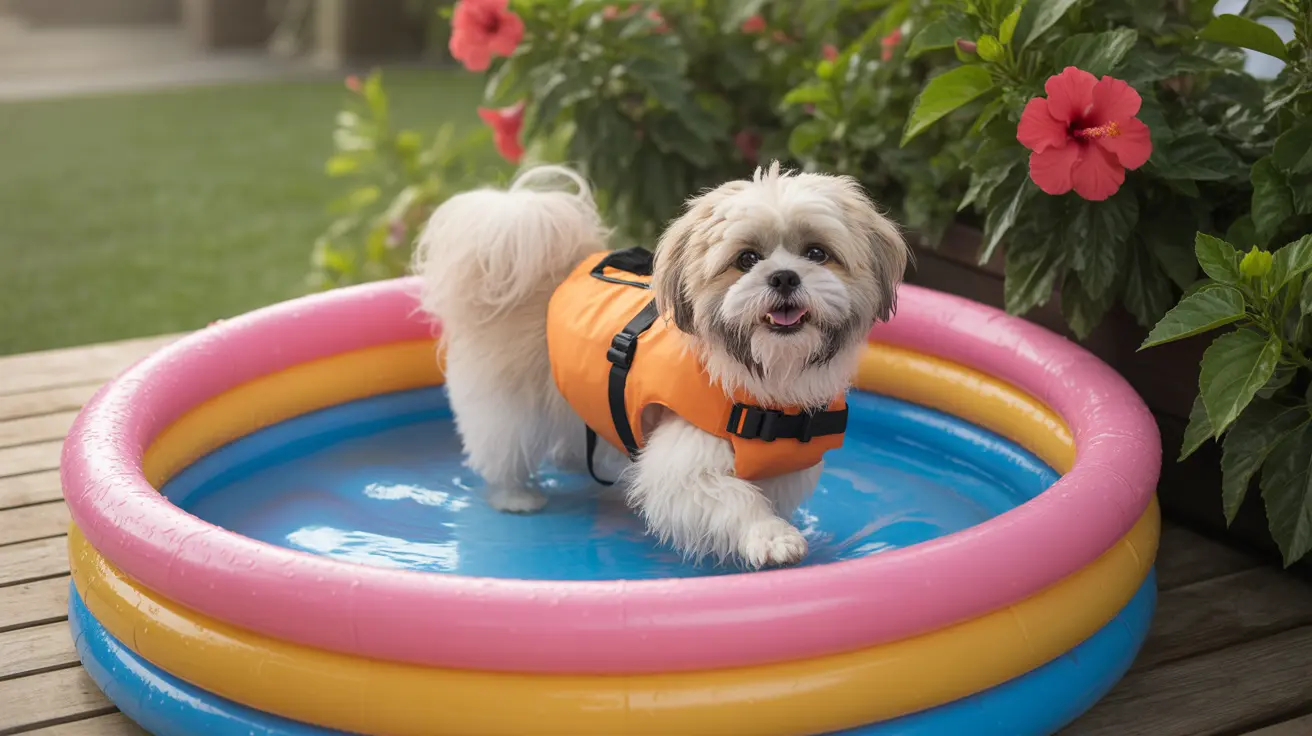If you're a Shih Tzu owner wondering about your pet's swimming abilities, you're not alone. While Shih Tzus can technically swim, their unique physical characteristics make them less naturally suited to water activities compared to breeds like Labrador Retrievers or Portuguese Water Dogs.
Understanding your Shih Tzu's swimming capabilities and limitations is crucial for ensuring their safety around water. Let's explore everything you need to know about Shih Tzus and swimming, including safety measures, training tips, and potential risks.
Understanding Shih Tzu Swimming Capabilities
Shih Tzus face several physical challenges when it comes to swimming. Their short legs, brachycephalic (flat-faced) structure, and dense, long coat can make swimming more difficult and tiring. While they possess a natural instinct to paddle when in water, their body composition often works against them.
The breed's heavy front end and relatively low stamina mean they tire quickly in water, which can lead to dangerous situations if not properly monitored. Additionally, their luxurious double coat becomes waterlogged easily, adding extra weight and making movement more challenging.
Essential Safety Measures for Swimming Shih Tzus
Life Jacket Requirements
A properly fitted dog life jacket is non-negotiable for Shih Tzus in or around water. Look for one with:
- A handle on top for quick retrieval
- Adequate buoyancy support
- Secure straps that won't tangle in their coat
- Bright colors for high visibility
Supervision and Environment
Never leave your Shih Tzu unattended around water, even if they're wearing a life jacket. Ensure swimming areas have easy exit points and maintain shallow-water boundaries. Pool owners should install pet-specific safety features like ramps or steps designed for small dogs.
Teaching Your Shih Tzu to Swim
Start with these progressive steps:
- Introduce them to shallow water gradually
- Use positive reinforcement with treats and praise
- Support their belly while they learn to paddle
- Keep initial sessions under 5 minutes
- Always respect their comfort level
Remember that not all Shih Tzus will enjoy swimming, and that's perfectly okay. Never force your dog into the water if they show signs of distress or reluctance.
Post-Swimming Care
After swimming, proper care is essential:
- Thoroughly dry their coat to prevent skin issues
- Clean and dry their ears to avoid infections
- Rinse with fresh water if they've been in chlorinated or natural water
- Monitor for signs of fatigue or distress
- Provide fresh drinking water to prevent them from consuming pool or lake water
Alternative Water Activities
If your Shih Tzu isn't keen on swimming, consider these safer alternatives:
- Shallow kiddie pools for supervised splashing
- Sprinkler play on hot days
- Water toys in very shallow water
- Cooling mats for summer comfort
Frequently Asked Questions
Can Shih Tzus swim safely given their body structure and stamina limitations?
While Shih Tzus can swim, they're not naturally strong swimmers due to their physical structure. Safe swimming is possible with proper precautions, including life jackets and constant supervision, but sessions should be kept brief due to their limited stamina.
What are the best safety measures, like life jackets and supervision, when letting a Shih Tzu swim?
Essential safety measures include using a properly fitted dog life jacket, maintaining constant supervision, ensuring easy pool exits, and keeping swimming sessions short. Never leave your Shih Tzu unsupervised around any water source.
How should I introduce my Shih Tzu to water and teach them to swim without causing fear or exhaustion?
Start in very shallow water, use positive reinforcement, and gradually increase depth as confidence grows. Support their belly initially, keep sessions brief, and never force them into the water. Always watch for signs of fatigue.
What health risks should I watch for after my Shih Tzu swims, especially regarding their ears and skin?
Monitor for ear infections by thoroughly drying ears after swimming. Watch for skin irritation from chlorine or bacteria, and rinse their coat with fresh water after swimming. Pay attention to signs of respiratory issues, especially due to their flat-faced structure.
Are there safer water play alternatives for Shih Tzus who dislike swimming or tire quickly?
Yes, alternatives include shallow kiddie pools, sprinkler play, or cooling mats. These options provide water enjoyment without the risks associated with swimming while still helping them stay cool during hot weather.






